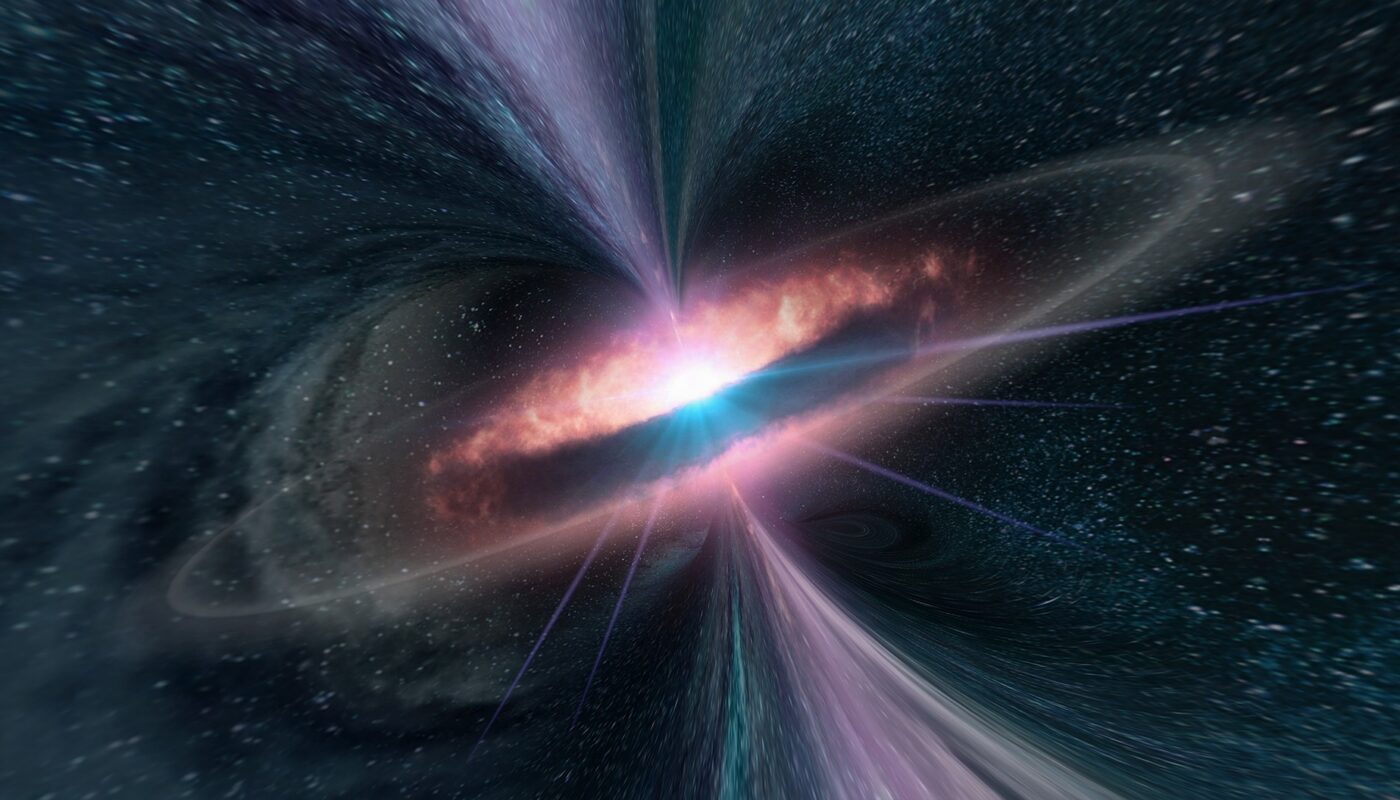Black holes have long been known for their powerful gravitational pull, sucking in everything in their vicinity. However, recent research conducted by a team of astrophysicists at Princeton University has revealed that black holes can lose energy, contrary to the belief that nothing can escape their grasp. According to Einstein’s theory of relativity, rotating black holes can gradually lose energy to their surroundings, similar to how a spinning top slows down and loses energy in its rotation.
Since the 1970s, scientists have hypothesized that magnetic fields are responsible for extracting energy from spinning black holes. However, the mechanism behind this phenomenon has remained a mystery. The Princeton astrophysicists have now discovered that energy near the event horizon of the black hole M87* actually pushes outward, rather than being drawn inward. This groundbreaking finding not only confirms the loss of rotational energy in black holes but also sheds light on the formation of the incredibly powerful outflows known as jets.
The researchers compare these energy outflow jets to million-light-year-long Jedi lightsabers, stretching up to ten times longer than the Milky Way galaxy itself. The study, published in The Astrophysical Journal, outlines the team’s prediction that black holes lose rotational energy and demonstrates the correlation between the direction of energy flow and the direction of magnetic field lines.
The first author of the paper, Andrew Chael, and co-author George Wong, both members of the Event Horizon Telescope team, played a crucial role in developing models used to interpret black holes. Chael’s insight regarding the direction in which magnetic field lines spiral was instrumental in shaping the team’s research. The discovery ultimately points toward a significant amount of energy being released from M87*—equivalent to detonating the Earth with TNT 1,000 times per second for millions of years.
The findings have profound implications for our understanding of black holes. As black holes spin, they engage in a process that drags spacetime along with them. Magnetic field lines threaded through the black hole also get dragged, which slows down the rotation and leads to a release of energy. The researchers propose that whenever an astrophysical black hole possesses attached magnetic field lines, there will be an unprecedented amount of energy transfer. Alexandru Lupsasca, a former Princeton postdoc and assistant professor at Vanderbilt University, remarks that the energy transfer is truly remarkable.
While the team’s research confirms that energy flows outward near the event horizon of M87*, they acknowledge the possibility of energy flowing inward in other black holes. Nevertheless, the scientists express confidence in the correlation between energy flow and the direction of magnetic field lines. The prediction that energy flow originates from the black hole will be tested with the launch of the next generation Event Horizon Telescope, which is still in the theoretical stage.
The scientists involved in the research emphasize that they have not definitively proven the connection between the black hole’s spin and the extragalactic jet’s power. Although their model indicates the levels of energy required for the jets, they cannot rule out the chance that rotating plasma outside the black hole might also contribute to the jets’ energy. However, the team is optimistic that future research and advancements in observational technology will provide further evidence to support their hypothesis.
As the scientific community eagerly awaits the launch of the next generation Event Horizon Telescope, researchers are excited about the significant progress made in unraveling the mysteries of black holes. The study conducted by the Princeton astrophysicists marks a significant step towards a deeper understanding of the powerful forces at play within these cosmic marvels.
Note:
1. Source: Coherent Market Insights, Public sources, Desk research
2. We have leveraged AI tools to mine information and compile it




